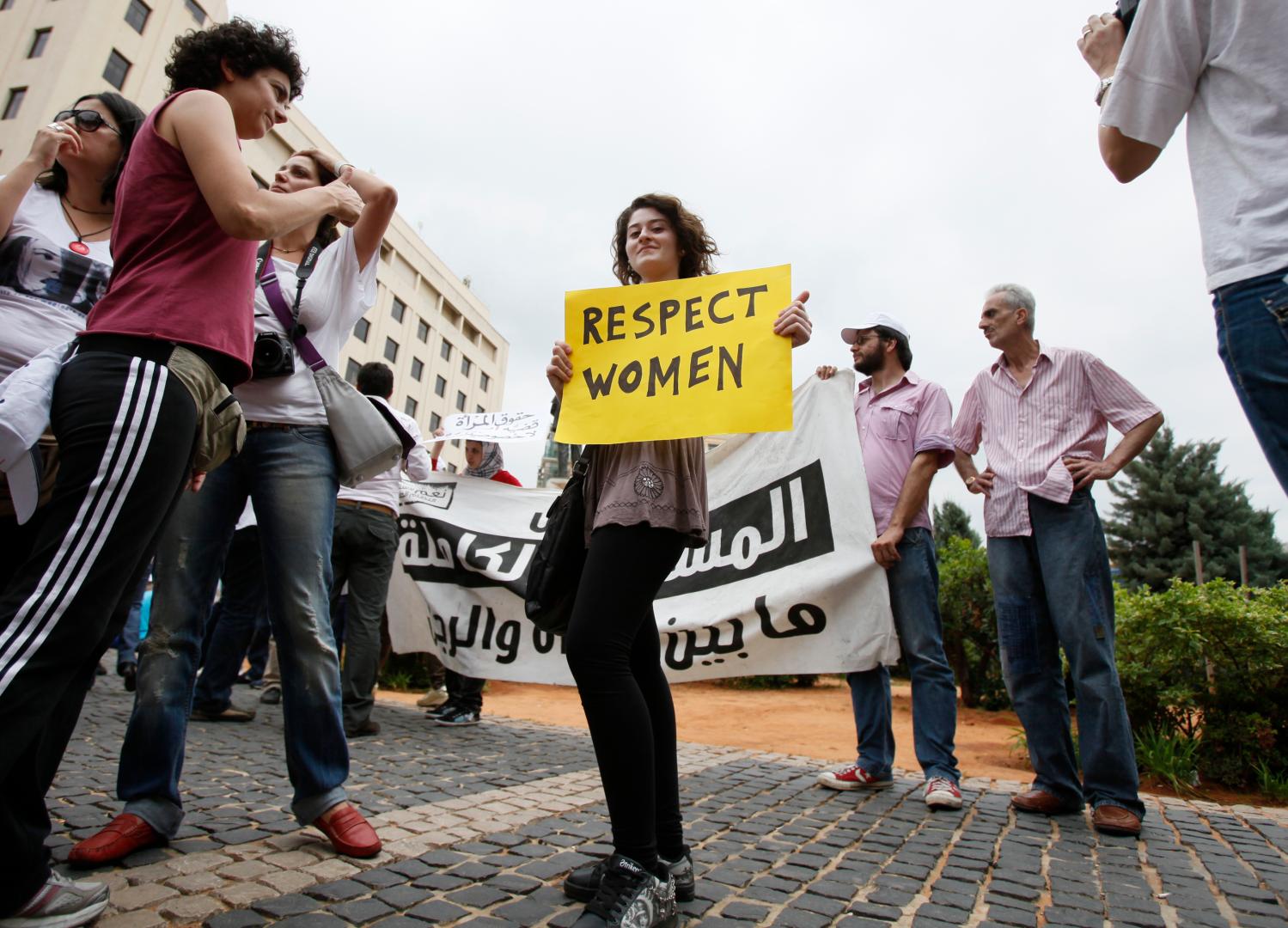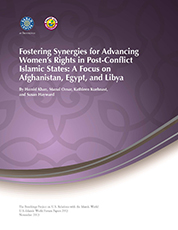Finding common ground among diverse stakeholders on women’s rights in Muslim-majority states is critical to advancing democracy and human development. This paper examines ways to champion and sustain progress on women’s rights amid renewed Islamic constitutionalism by searching for common approaches among Muslim women activists, members of the ulama, and legal advocates.
Among the Key Findings:
-
Despite the belief held by many that Islamic legal provisions create incompatibilities with democracy and gender equality, the variety of different forms of Islamic constitutionalism create opportunities for political, legal, and religious equality and progress.
-
A need exists for a solid Muslim feminist jurisprudential basis which shows that Islam demands rights for women.
-
Effective cooperation is needed between political activities, legal advocates, and religious leaders to advance women’s legal and societal rights.
Read other publications from the 2013 U.S.-Islamic World Forum »
The Brookings Institution is committed to quality, independence, and impact.
We are supported by a diverse array of funders. In line with our values and policies, each Brookings publication represents the sole views of its author(s).




